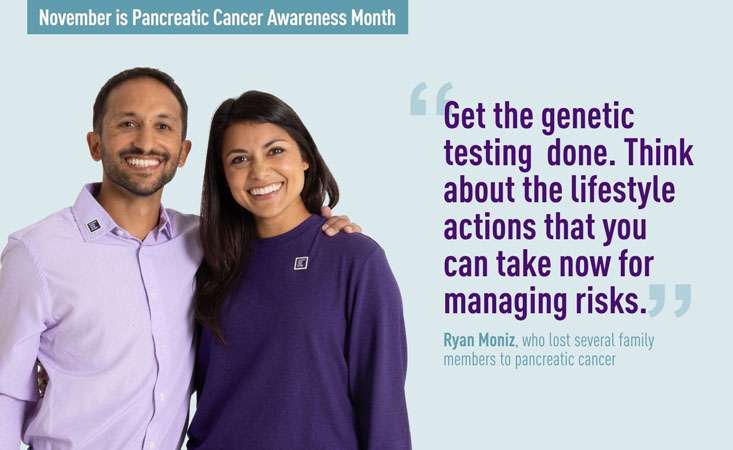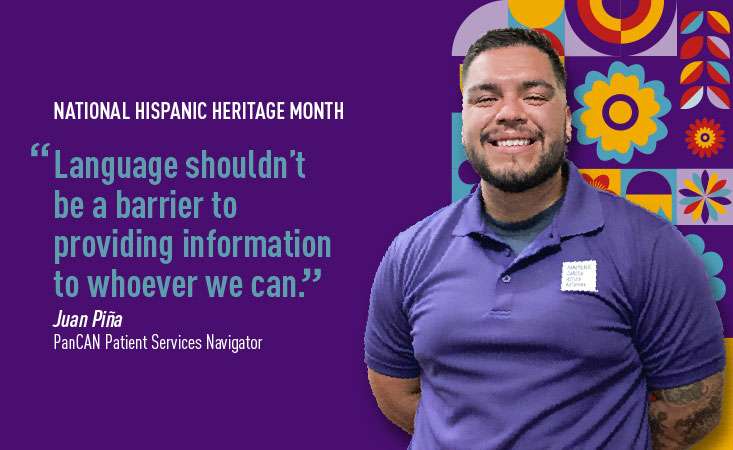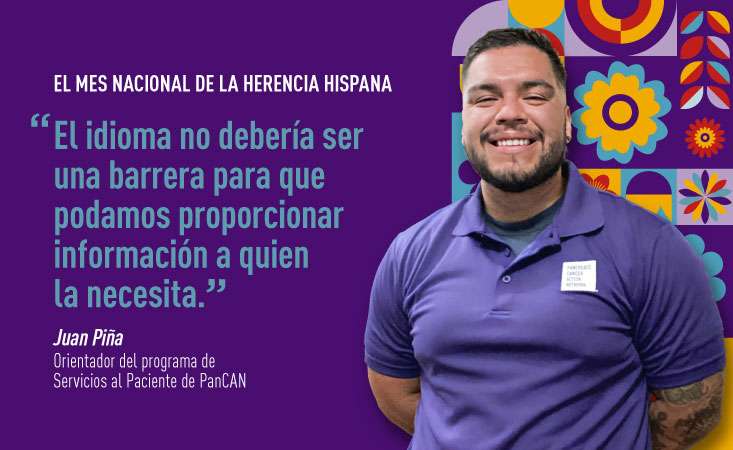
Photo credit: Simon & Schuster
The Pancreatic Cancer Action Network (PanCAN), a leading patient advocacy organization dedicated to fighting the world’s toughest cancer, is grateful to Alex Trebek for his continued openness about his treatment journey with pancreatic cancer. He has raised tremendous awareness about the disease and the need for better outcomes.
Trebek announced in various news interviews that he is still undergoing treatment for Stage IV pancreatic cancer, and we hope that he continues to do well.
Every pancreatic cancer patient’s case is unique, and it’s not possible to predict each person’s outcome. But, population-wide studies are done to estimate the likelihood that a person diagnosed with different types of cancer, like pancreatic cancer, will survive five years.
This year, the five-year survival rate for pancreatic cancer hit 10% – the first time ever this statistic has been reported in the double digits. While this is good news, pancreatic cancer still has the lowest survival rate of all major cancers and remains the third leading cause of cancer-related death in the U.S.
Trebek mentioned that he is being treated with experimental immunotherapy.
From what we know about the experimental treatment that he is getting, it is a combination of chemotherapy, radiation and an experimental immunotherapy approach.
Immunotherapy works by harnessing the patient’s own immune system to recognize, attack and kill their cancer cells. Typically, immunotherapy approaches require activating the immune system and suppressing efforts by the cancer cells to hide from the immune system.
To date, immunotherapy has not shown success by itself for most pancreatic cancer patients. A small subset of pancreatic cancer patients responds to a checkpoint inhibitor approach, depending on their tumor’s biology.
Therefore, many immunotherapy drugs are being tested in combination with other treatment options, like chemotherapy, to improve their effectiveness in patients with pancreatic cancer.
Today there are 169 clinical trials currently enrolling pancreatic cancer patients across the country. Every clinical trial has specific eligibility criteria to determine which types of patients may participate. For more information on clinical trial eligibility, please contact PanCAN’s expert case managers at 1-877-2-PANCAN.
About pancreatic cancer clinical trials and genetic and biomarker testing
In the fight against pancreatic cancer, clinical trials often provide the best treatment options, and they give patients early access to cutting-edge treatments that can lead to progress in research and better outcomes. Every treatment available today was approved through a clinical trial, which is why it is so important for patients to enroll and participate.
PanCAN strongly recommends clinical trials at diagnosis and during every treatment decision.
Every patient is unique, so it is important to discuss what clinical trials may be right for you with one of PanCAN’s expert case managers.
PanCAN also recommends that all patients get genetic and biomarker testing to determine the best treatment options for them. Genetic testing evaluates a patient’s saliva or blood for alterations they’re born with, and biomarker testing looks at a sample of a patient’s tumor for any changes in their DNA or protein.
Knowing the signs and symptoms
There is no early detection test for pancreatic cancer and because of this, many patients are diagnosed late stage, like Trebek. That’s why PanCAN educates the public about the common symptoms of pancreatic cancer so that people can be their own best advocates and to help diagnose this disease earlier, when surgery may be an option. Common symptoms include mid-back pain, stomach pain, jaundice and weight loss. PanCAN recommends that if someone is experiencing more than one of these symptoms, they should speak to their doctor about it















